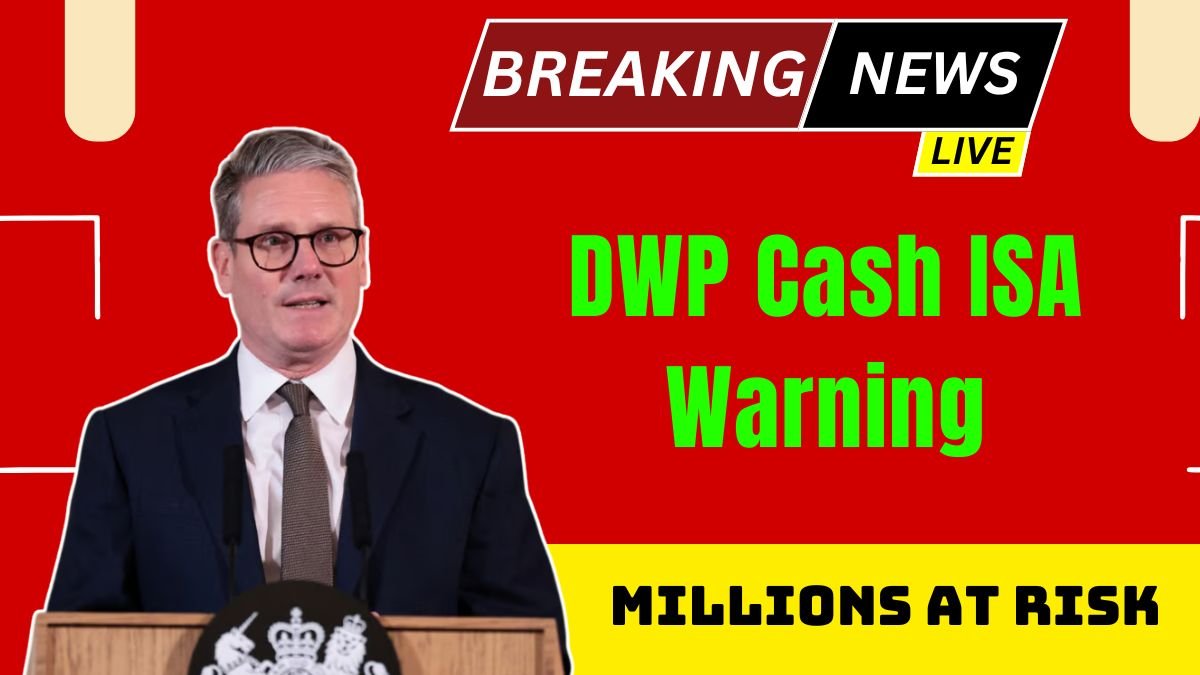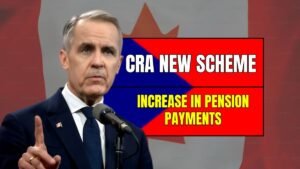DWP Cash ISA Warning: The UK government has started considering some proposals regarding Cash ISA, which can become a matter of concern for millions of savers. If you also keep your money in tax-free savings, then this news is very important for you.
What is Cash ISA?
Cash ISA (Individual Savings Account) is an account in which you can deposit money up to a certain limit every year, and no tax is paid on the interest received on it. These accounts are beneficial for those who do not want to take risk in investment.
Currently, any person can deposit up to £20,000 every year—and there is no tax on it.
What Changes Can the Government Make?
If sources are to be believed, the new government, especially under the leadership of Chancellor Rachel Reeves, wants to make changes in this scheme. There are reports that the government may reduce this limit to just £4,000. Some experts even say that there is a proposal to completely stop Cash ISA.
Comparison of the Current System and the Proposed Changes
| Feature | Current System | Proposed Changes |
|---|---|---|
| Annual limit | £20,000 | Can be reduced to £4,000 |
| Tax-free interest | Yes | Can be limited |
| Complete freedom to choose Cash and Stock ISAs | Yes | More emphasis on stocks |
| Simplicity of rules | Simple | Can be complex |
Why is the Government Doing This?
1. To Promote Investment
The government wants people not only to save, but also to invest that money in companies so that the country’s economy can be strengthened.
2. To Accelerate the Economy
More than £300 billion is deposited in Cash ISAs. If some of this money is diverted towards companies, employment can increase, industries can grow rapidly, and the country’s GDP can improve.
3. Balancing Tax Benefits
It is believed that rich people take advantage of this scheme more because they are the only ones who can save up to £20,000. Therefore, efforts are being made to make it equally fair for everyone.
Who Will Be Affected the Most?
Each type of saver will be affected differently. Below are some examples:
1. Risk-Averse Savers
People who are afraid of risk and invest only in safe savings will have limited tax-free options.
2. People in Higher Tax Brackets
Those who are already taxed more may have to pay tax on higher interest.
3. First-Time Home Buyers
They will have to rely on options like Lifetime ISA, which comes in the limit of £4,000.
4. Retired or Senior Savers
They may have to invest in risky options or face tax.
5. Younger Savers on Lower Incomes
They will be less affected because they benefit from the Personal Savings Allowance (PSA).
What Do the Experts Say?
Finance experts are divided:
Some experts believe it will encourage investing habits and will be beneficial in the long run.
Other experts, such as Martin Lewis, believe it could put the general population, especially the elderly and the middle class, at risk.

How to Protect Yourself?
If you’re concerned about these potential changes, you can start preparing now:
1. Make the Most of Your Current £20,000 Allowance
If you were thinking of saving in a Cash ISA, use it up before the change.
2. Look for Fixed-Rate Cash ISAs
These lock you in for a fixed period, which benefits from the current rules.
3. Take Advantage of Personal Savings Allowance
People in the basic tax bracket can earn up to £1,000 in tax-free interest.
4. Consider Stocks & Shares ISAs
If you are willing to take a little risk, this could be an option that gives better returns.
Options Advantages and Disadvantages
| Options | Advantages | Disadvantages |
|---|---|---|
| Cash ISA | Safe, tax-free | Low returns, impact of inflation |
| Stocks & Shares ISA | High returns, tax-free growth | Market risk, capital risk |
| Lifetime ISA | Bonus from the government | Limited use, penalty |
| Premium Bonds | Tax-free reward | No interest |
| Innovative Finance ISA | May get more interest | Risk is high, not safe |
What is the Official Stand of the Government?
At present, the government has not made any firm announcement. However, according to the Treasury’s October 2024 Budget report, the ISA limit has been frozen till April 2030. But the new minister may reconsider it.
Will Cash ISA Be Closed Completely?
Unlikely. More likely, the limit will be reduced, as with Lifetime ISAs.
Read more: CRA Announces Pension Payment Increase: Who Qualifies and How Much?
What Will Be the Tax Implications?
If the limit is reduced, you will have to pay tax on your savings. The impact will vary depending on your tax bracket:
| Tax Category | Tax-Free Interest Limit | Tax on Additional Interest |
|---|---|---|
| Basic (20%) | £1,000 | 20% |
| Higher Rate (40%) | £500 | 40% |
| Additional Rate (45%) | £0 | 45% |
What Are the Other Options?
- Pension Contributions
- Lifetime ISAs
- Premium Bonds
- National Savings Certificates
When Could the Changes Happen?
These changes could come in the Autumn Budget 2025 or in a major financial announcement thereafter, which could come into effect from April 2026.
Conclusion
The potential changes that could come about Cash ISAs are important for every saver. If you want to take full advantage of this, start planning now and talk to a financial advisor if needed.
Don’t just keep your savings in one place—understand the options, diversify investments ahead of time, and be prepared for the changes that may come.


